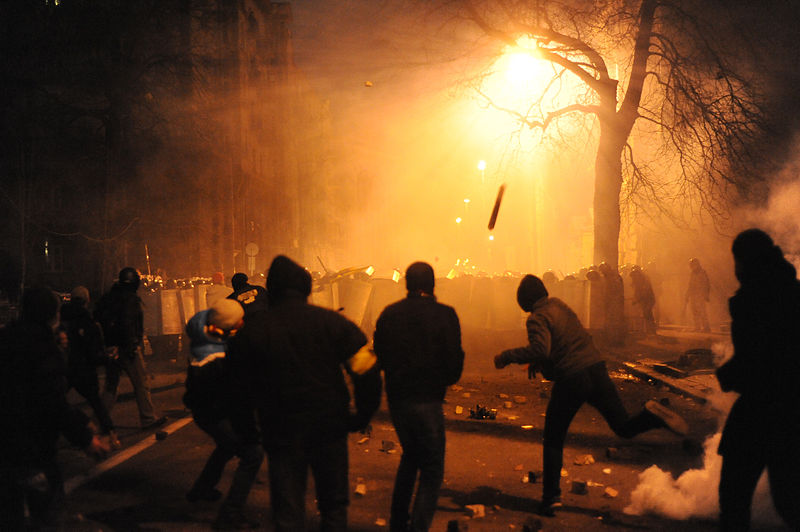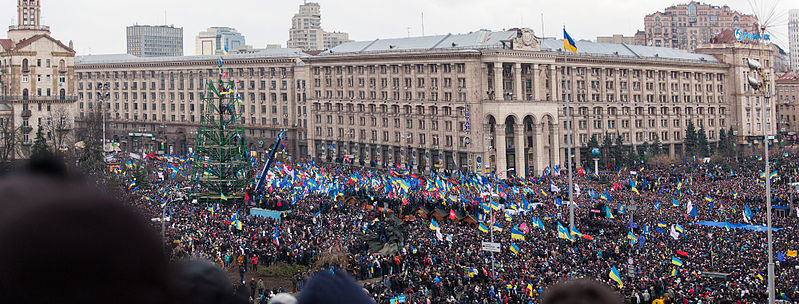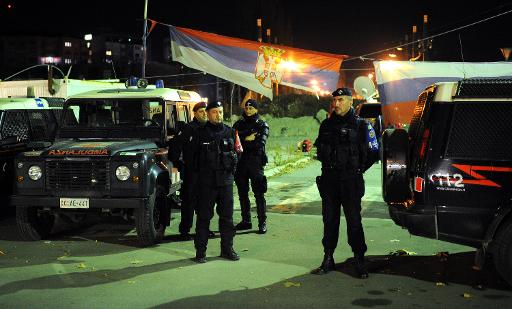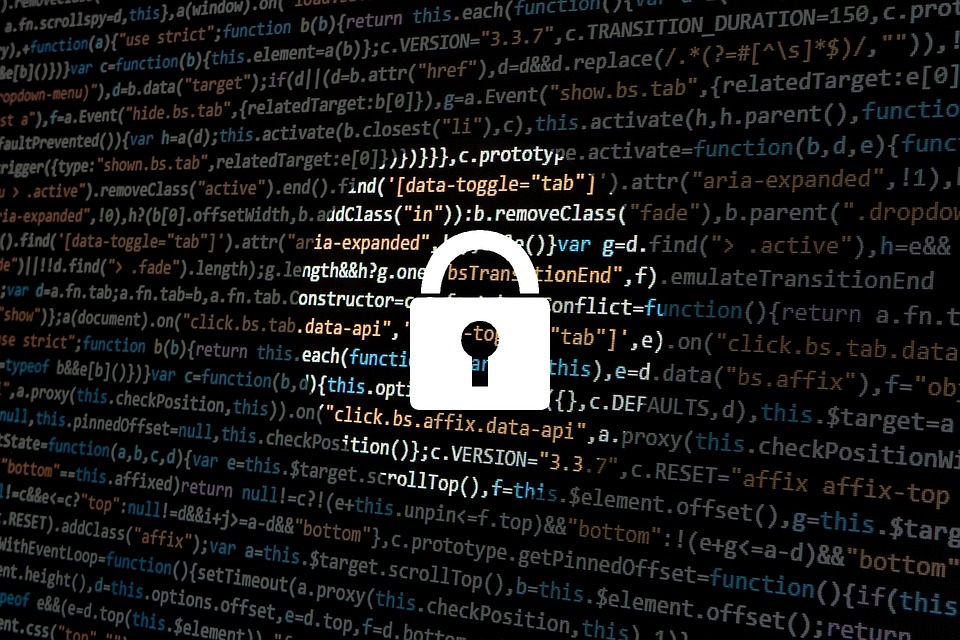Initially, peaceful anti-government protests have turned violent after protesters clashed with riot police near the Ukrainian parliament in mid-January. The violence follows the adoption of tough new anti-protest laws aimed specifically at the EuroMaidan demonstrators, the press, and the many foreign non-governmental organizations and supporters. The laws passed by the government of President Viktor Yanukovych have been denounced by the opposition as both undemocratic and illegitimate.
The protests first erupted less than two months ago after President Yanukovych’s surprising refusal to sign a landmark EU-Ukraine Association Agreement which would have strengthened Ukraine’s trade ties and integration with Europe. The price of the agreement would have inevitably figured in painful economic restructuring bound to shake up the interests of the country’s ruling oligarch elite. Also at stake are the interests of the Russian Federation, which Ukraine views as a fraternal neighbour which in many ways catalysed the early Russia state, religion and culture. Since Sunday’s clashes, both the European Union and the United States have expressed deep concern at the government’s response to the protests.
In Sunday’s clashes, Ukraine’s special riot police squads responded with teargas, stun grenades, water cannons, and rubber bullets, while a radicalized minority amongst the protesters lobbed Molotov cocktails and chunks of pavement at police. Government reports list roughly 30 police and 100 protesters injured, many requiring hospitalization. In all, over 100,000 have turned out in the capital Kiev to protest the new measures last weekend. More recently, two protestors in Kiev were killed in violent overnight riots.
Continued street violence in the capital is troubling despite President Yanukovych’s promise to negotiate with Ukraine’s opposition leaders. The President had ordered the country’s Security Council Secretary Andrey Klyuyev to form a special cross-party commission to solve the political crisis after images of clashes were broadcast by news media. The most prominent opposition leader besides the imprisoned Yulia Tymoshenko, was boxing champion-turned politician Vitaly Klitschko of the UDAR party (Ukrainian Democratic Alliance for Reform) who urged demonstrators to stop provoking the nearby-stationed riot police squads, even if the new anti-protest legislation pave the way for a Ukrainian police state. Unfortunately, Yanukovych’s pledge for dialogue turned out to be hollow, as government officials offered little of significance to opposition representatives, which could bring the violence to an end.
The new laws outlaw all forms of public anti-government protest. With the protests nearly in their third month, the prospects of a speedy resolution through the proposed roundtable remain remote. For one, the legislation was controversially rushed through parliament in a matter of minutes last week, with only a simple show of hands by representatives, instead of using the recognized electronic voting system which would have made individual parliamentarians accountable for their recorded vote. The law itself addresses public protest and press bans, with specific bans on the unauthorized installation of tents, stages, and amplified sound equipment in public spaces. It also provides grounds for arrest of protesters wearing ski masks and helmets, bans on convoys over five vehicles, and establishes criminal responsibility for defamation of government officials punishable by fines or jail time. Some of the measures copy legislation found in the Russian Federation, with organizations receiving financial support from foreign sources now labelled as “Foreign Agents”, required to pay special taxes, and forced to routinely publish their activity. Various forms of protest in public spaces and online also face heavy restrictions, as does the distribution of “extremist materials” both in public and online.
Meanwhile, as US Secretary of State John Kerry affirmed that, “…the people of Ukraine want to be associated with Europe, and they want to turn in that direction”, it is becoming clear that the pro-EU protests have evolved into anti-government and anti-Yanukovych demonstrations. Soon after the start of the EuroMaidan movement and protest actions last November, it was the position of the Obama administration and many European, and EU-level leaders that the wrath of the Ukrainian people is the result of actions taken by President Yanukovych and his Party of the Regions.
Ukraine’s ruling political elite had opted for stronger ties with Russia through Vladimir Putin’s Eurasian Customs Union. Despite years of negotiation with European representatives urging Ukraine to implement political and economic reforms counter to the interests of the Kremlin and Ukraine’s own lot of oligarchs, President Yanukovych’s sudden refusal seems pragmatic, self-interested, and clearly opposite to those holding stock in eventual EU membership and the revitalizing inflow of EU cohesion funds.
Many Ukrainians see the government’s move as catering to its own Russian-speaking power base. President Yanukovych’s Party of the Regions has concentrated support in Ukraine’s industrial East which was hit hard economically after the fall of the Soviet Union. Rather than taking a more visionary approach through closer ties with Europe, similar to that of many pro-Western and reform parties in Western Ukraine, Yanukovych and his party see themselves as the caretakers of what little industrial production remains in Ukraine, even if it is vastly inefficient and in need of restructuring. On the other hand, pro-EU parties wish to ignite the same kind of economic, political and cultural renaissance seen in the last two decades in the countries of the former Eastern bloc, where EU conditionality policies forced through many positive changes in legal codes, economic regulations, and environmental protection, all of which are seriously underfunded, and corrupt in Ukraine.
With a situation as volatile as this, the continuing clashes in the streets of Kiev are ever-more troubling. It is difficult to say whether this is the start of a revolution, or the end of civil liberties and freedoms in Ukraine. If there is one thing to watch in the coming weeks, it is events which could seriously influence the country’s February Presidential elections. Will opposition leaders present a cohesive-enough front to oust the incumbent and adopt national policy in line with the hopes of the pro-EU crowd found in Kiev and Ukraine’s West? Then again, if that is to be the case, what of the interests of Ukraine’s East and Moscow?





